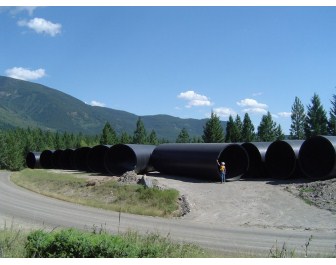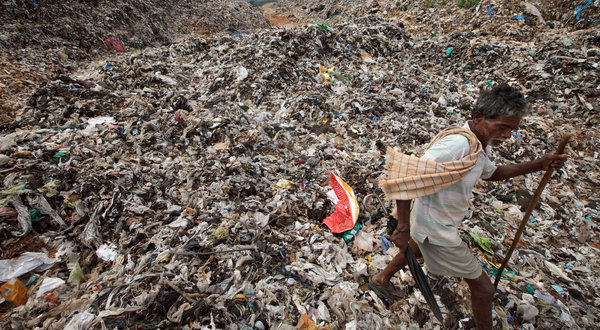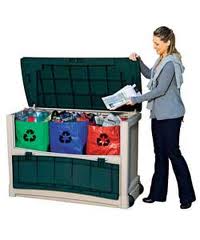Recyclers enjoying strong markets for plastic believe the optimistic outlook can be attributed to re-stocking after the pandemic as well as a desire for greater circularity in polymers.
The consensus is set out by Henk Alssema, co-owner of Vita Plastics in the Netherlands, and chairman of the BIR Plastics Committee, who also cautions about higher charges for freight and long lead times for containers. Writing in the world recycling organisation’s latest quarterly ‘Mirror’, Alssema assesses the sector as ‘witnessing a combination of constant price hikes across all segments, huge demand for recycled material and very high shipping rates’.
He goes on: ‘After a very difficult 2020, the recycling market has picked up very strongly in 2021, with a huge demand for recycled materials over recent months. The upward price movements seen in December continued into January and February and further increases seem likely in the next couple of months.’
Alssema believes plastics recyclers remain positive with prices for HDPE, LDPE, PP and HIPS rising significantly and analysts expecting markets to return to pre-pandemic levels.
‘Plastics recyclers believe the improved demand is resulting from the new trend towards end-product producers being more aware of a future in which a circular economy will be the standard,’ he argues. ‘They are using more and more recycled material (instead of prime) to make their products more sustainable and thus to contribute to this more circular economy. Another reason behind the high demand is that purchasers did not buy a lot of material during the last few months of 2020 because they wanted to reduce their stocks for end-of-year reporting purposes.’
Even so, he sees an ‘enormous’ increase in shipping rates and long lead times for handling containers as major problems for recyclers who export their materials. ‘In some cases, it is taking six to eight weeks to ship materials owing to a lack of containers. How this situation will develop in the coming months remains uncertain.’
Feedstock demand
Fellow BIR board member Steve Wong, who is also executive president of the China Scrap Plastics Association, says processors are struggling to obtain sufficient feedstock to keep their operations going, boosting demand, and he echoes the concerns over operational problems.
‘Another challenge for recyclers is the increase in freight rates and booking cancellations by shipping lines. There are shortages of vessels, equipment, trucks and drivers at exporters’ ports owing to the impact of Covid-19. The situation will not improve before March, but hopefully conditions should ease with progress in the vaccination roll-out programmes.’
Wong also reports that plastic scrap supply into China has been reduced by half following the enforcement of Basel Convention amendments coupled with the impact of the pandemic. ‘Most countries and stakeholders are uncertain about what they can ship under the B3011 and Y48 entries and about prior informed consent procedures,’ he says. Most affected are WEEE, mixed plastics, contaminated plastic scrap and unsorted mixed plastics.
Container charges rocket
Max Craipeau, from Greencore Resources, also remarks on container rates for shipping to Asia, saying they are at unprecedented highs with European exporters paying up to twice the regular amount. ‘It is even worse for shipments from Asia to Europe, with container exports up to four times more expensive than in normal times,’ he says. ‘As a result, there are virtually no exports of flakes or pellets from Asia to Europe these days.’
The changes brought by amendments to the Basel Convention mean western exporters are effectively limited to exports to OECD countries, with Turkey the only viable market for most lower-grade materials. ‘High-grade materials, which in theory can still go to non-OECD countries (albeit with more paperwork involved), are attracting higher premiums in their country of origin where demand is also increasing and where there is less administrative and logistical hassle. Thus, local and regional sales are increasing rather than wider exports,’ Craipeau concludes.
US outlook positive
The US perspective is offered by Sally Houghton from the Plastic Recycling Corporation of California who says markets for some forms of scrap have gained in strength and value, while others have either limited or no end markets.
‘Currently, there is a contrary market dynamic whereby export buyers, short of their own domestic material, are willing to pay more than US domestic buyers despite the major increase in freight rates. There is also a movement spearheaded by several large haulage companies which have stopped selling for export and are lobbying for the USA to become a signatory to the Basel Convention.’
Houghton says the combination of the Basel Convention amendments, mandated recycled content and an increase in oil prices has made for a brighter outlook. ‘Expectations of further plastic packaging mandates have spurred manufacturers to take a more proactive approach and engage in long-term planning and investment in the recycling supply chain. Prospects for the plastics recycling industry are positive, potentially allowing it finally to decouple from the virgin resin industry.’
References : https://recyclinginternational.com/plastics/plastic-markets-strong-but-freight-rates-a-burden/32934/







